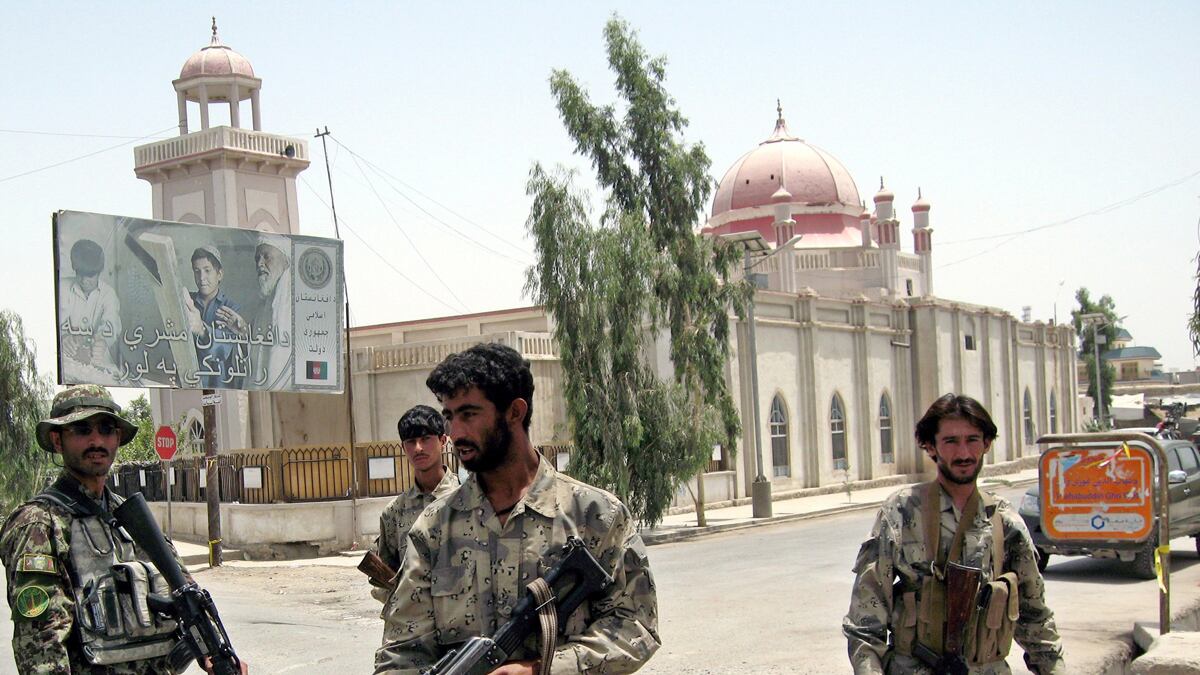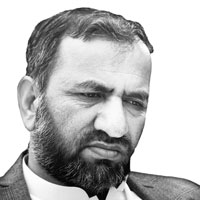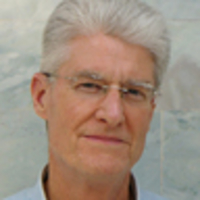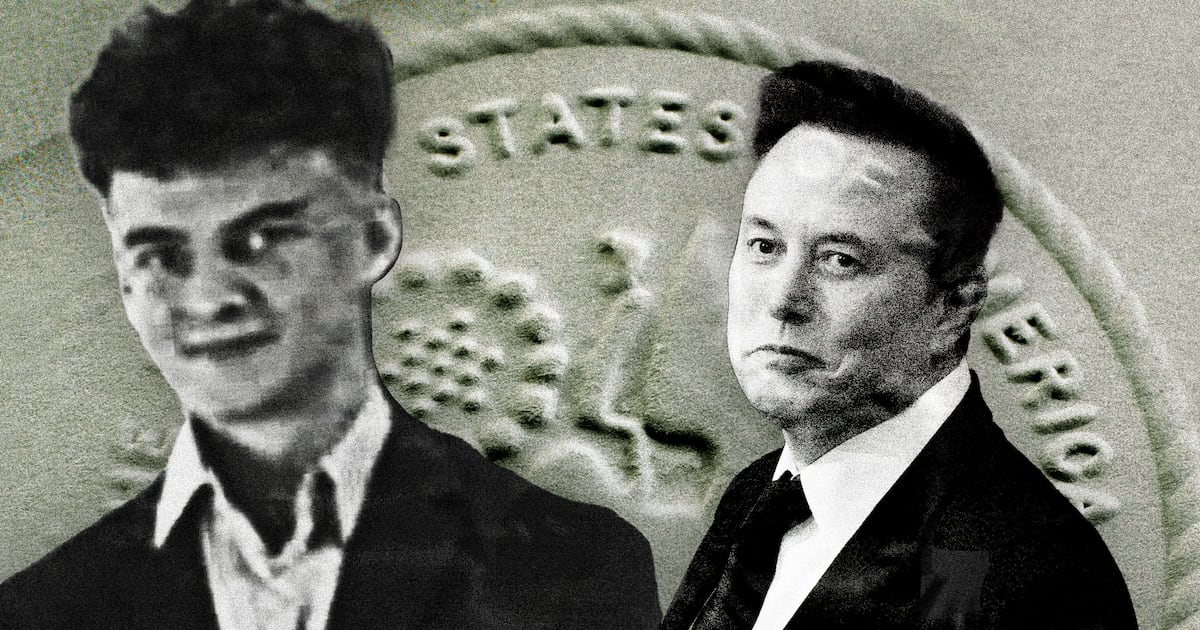Just one day after a weeping President Hamid Karzai presided over his slain brother’s funeral and appointed another half brother to replace him, a Taliban suicide bomber blew himself up inside a Kandahar mosque, killing at least four people and wounding nearly a score. The bombing, carried out despite heavy security surrounding the packed mosque, broke the calm of the three-day mourning period that the government had declared in honor of the president’s half brother, Ahmed Wali Karzai, who had ruled southern Afghanistan as if it had been his own fiefdom for nearly the past decade. Among the dead in the blast was Hekmatullah Hekmat, the chief of the province’s religious council. The bomber, whose explosive were hidden inside his high turban, failed to kill dozens of other high-ranking government officials and tribal leaders who had gathered at the mosque for a memorial service for Wali Karzai.
The suicide attack points out the enormity of the task that President Karzai’s half brother, Shah Wali Karzai, a full brother of Ahmed Wali Karzai, faces. As the successor of AWK, as the U.S. military called its controversial ally, he becomes the head of the Karzai family and its considerable political and economic interests in its Kandahar provincial homeland. According to a Karzai family friend, Shah Wali was appointed with the unanimous agreement of all senior Karzai family members. He is 51, one year old than AWK. He also becomes the de facto head of the Popalzai tribe, the region’s most powerful. In addition, he inherits the role of being the region’s powerbroker with sweeping responsibilities. He not only has to solve the diurnal problems of poor peasant petitioners who will descend on his house as they did on AWK’s, asking for compensation for a stolen cow, but also maintain the peace among competing tribes and keep them on the government’s side
That’s a heavy burden for any seasoned political player, let alone for someone who has largely been a real-estate developer in Kandahar along with his other brothers. “I don’t think Shah Wali can adequately fill his brother’s shoes,” says Eisa Muhammad Qanai. Shah Wali will be quickly and severely tested by a slew of clashing interests from the Taliban to ambitious tribal chieftains and militia commanders. Indeed, if security in Kandahar slips under his watch it could gravely set back the U.S. military’s plans of transferring forces and assets out of the south and moving them to the rugged, porous, and dangerous eastern border with Pakistan.
The Taliban will be looking to take advantage of any political or military weakness in the wake of AWK’s death. The insurgents offered no apology for the attack on a mosque. "In this war we will not lose any opportunity at any place, even if it is in the house of God,” says a southern Taliban commander who declines to be named for security reasons.

With this latest suicide bombing, the Taliban have once again proved that they can strike just about anywhere and whenever they want, no matter what kind of security arrangements they face. They have also claimed responsibility for AWK’s death, a boast that few people believe. The assassin, Sardar Mohammad, who was gunned down by other bodyguards immediately after he shot AWK in the head with a pistol, was no Islamic radical. Rather, he was a trusted AWK enforcer and bodyguard. He is from, and lives in, the Karzai family’s hometown of Khar where AWK was buried on Wednesday in the family tomb next to his father, a powerful Popalzai leader, who was killed by the Taliban in 1999. AWK had appointed him as a local police commander who headed some 200 tough gunmen, and who had worked for AWK for seven years. “He was a Wali team guy, one of the guys that Wali used as a police commander, and also used privately at times for security like an off-duty policeman,” says an American who knew AWK well. “This was a guy he truly did trust. Wali was no dummy about many things. But one thing he was very careful about was his security. He was not going to make himself an easy target.”
In that he failed. While the reason for Mohammad’s action remains a mystery, a senior government intelligence official, who declined to be named because of the ongoing investigation, tells THE DAILY BEAST that so far the best guess of investigators is that the motivation was a personal dispute between AWK and Mohammad. The source says that AWK had a “chilly” personality and had a quick-boiling temper. Recently, AWK had reportedly had harsh words for Mohammad, calling him a “motherf----r” in public several times. If that theory is true Mohammad may have felt he had been humiliated and had irredeemably lost face. But while he may have got his revenge, Mohammad has condemned his family to being outcasts in Pashtun society in which grudges are held for centuries. "I am shocked by what he has done,” says Qanai. “I have met him many times and he and his family have always been looking for help from the Karzai family for a half century." If Mohammad had been working for the Taliban, he would not have missed the opportunity to target the other government officials and tribal leaders who had gathered in AWK’s house.
Whatever his motives for killing AWK, his act is likely to irreparably change the political and military landscape in strategic southern Afghanistan.







